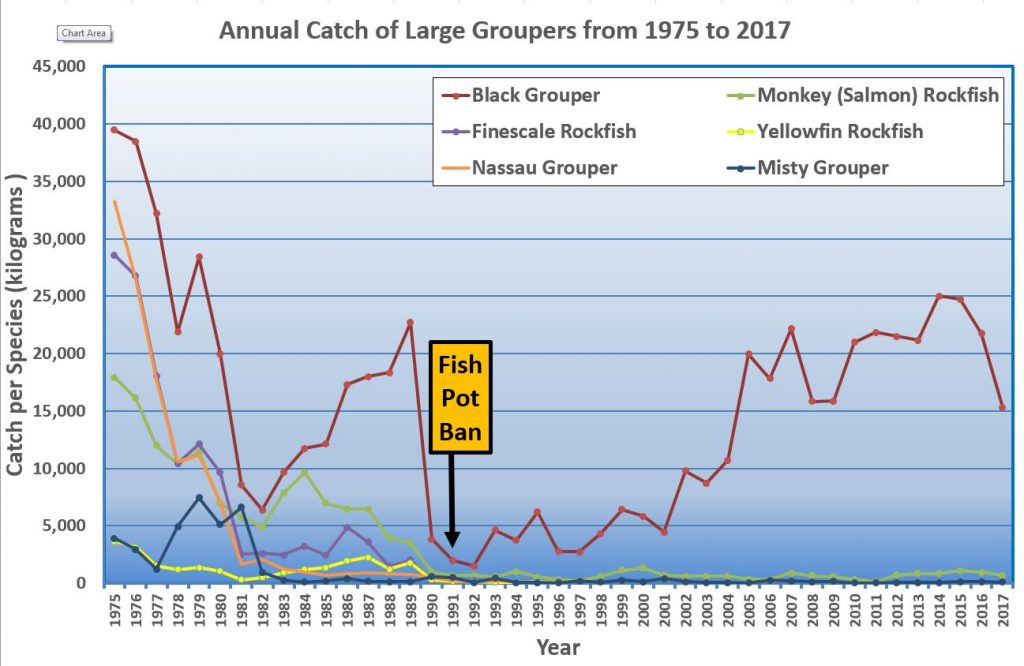Opinion article by Thaddeus Murdoch, PhD, Bermuda Environmental Sustainability Taskforce’s Marine Conservation Team resident scientist
There are six kinds of grouper: monkey rockfish, finescale rockfish, Nassau grouper, misty grouper, yellowfin rockfish and black grouper.
These six grouper species used to be on the menu and for sale across Bermuda. However, now we have only one large grouper in large quantity: the black grouper.
If you are lucky or well-connected, you might be able to get monkey rockfish, but gone are the days where anyone could catch a decent-sized Nassau grouper from the shore, or be sure to pull up a monkey rockfish from the side of the Banks. Large grouper used to represent a fishery of more than 100,000kg per year back in the mid-1970s. Caught biomass crashed to less than 10,000kg per year in the mid-1990s, primarily because the fish were gone, but to a small degree also fish pots were banned and new ways to catch large grouper had yet to be developed.
Black grouper catch has been increasing in the past 20 years, with take at around 22,000kg per year in 2015, as people figured out how to troll for them.
However, black grouper catch experienced a rapid decline in 2016 and 2017 — to 16,000kg in 2017. A drop from 22,000kg to 16,000kg represents a very highly significant decline.
Monkey (also known as salmon) rockfish used to represent 25 per cent of the catch in the 1990s, but has declined to less than 4 per cent of annual catch. Misty grouper are also still not a protected species, but their yield has declined from 10 per cent of catch down to less than 1 per cent of catch by 2000, where it remains still.
Caught biomass does not represent the number of fish still remaining in Bermuda waters. Catch and release of tagged fish, or in-water surveys using standardised methods, are required to determine how many fish are actually available to catch and whether our fish stocks remain at sustainable levels.
Read more here: http://www.royalgazette.com/opinion/article/20190226/groupers-plight-spells-trouble-for-ecology-and-blue-economy

